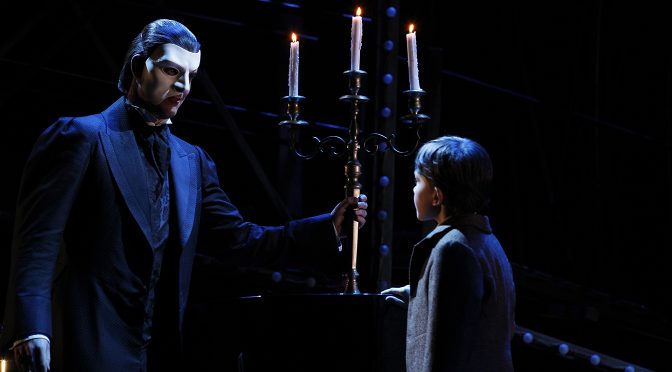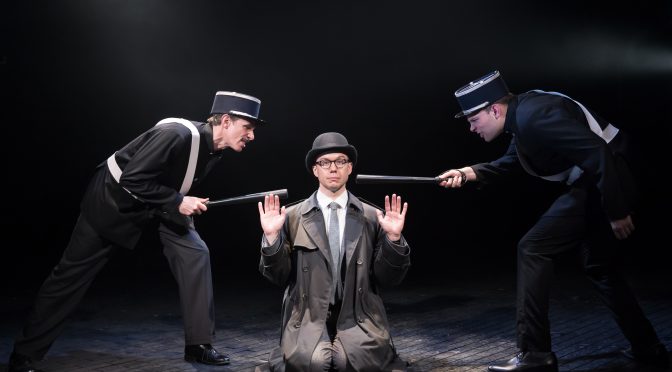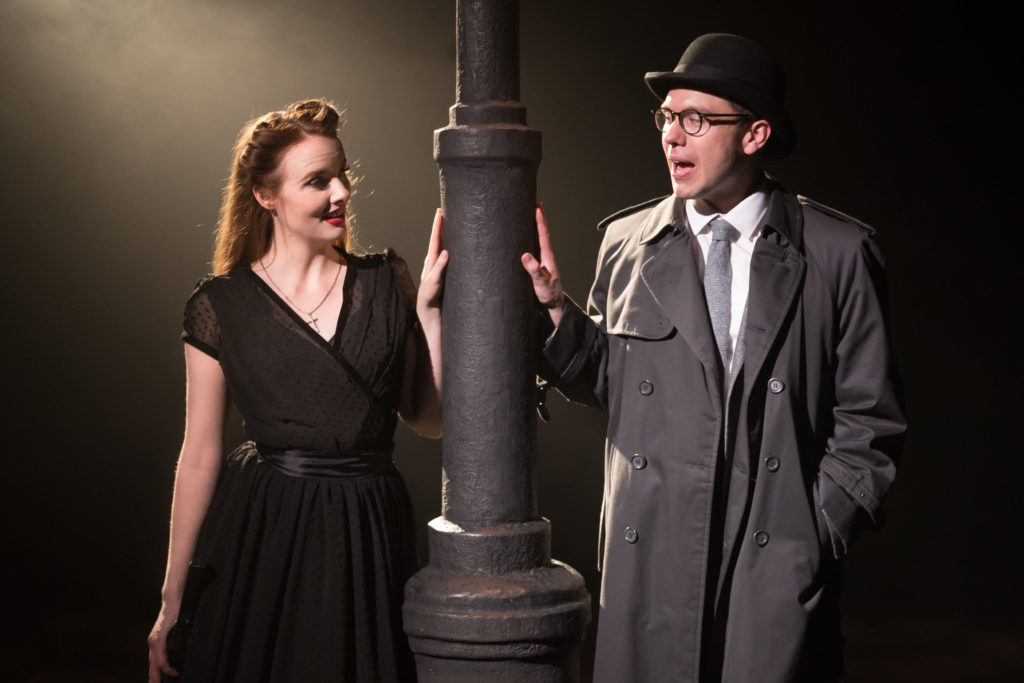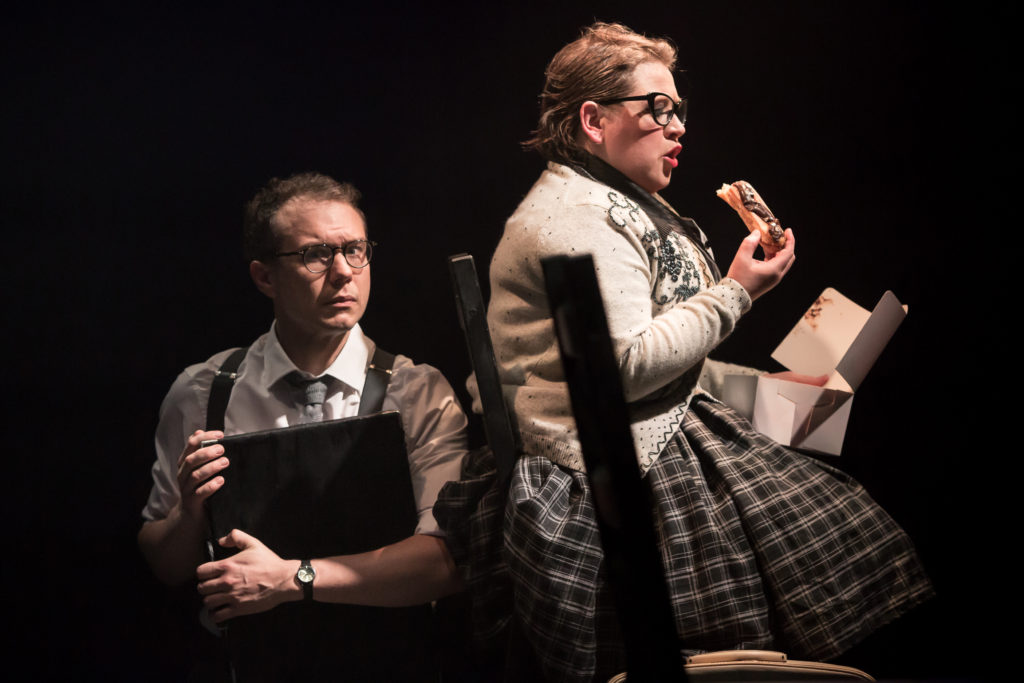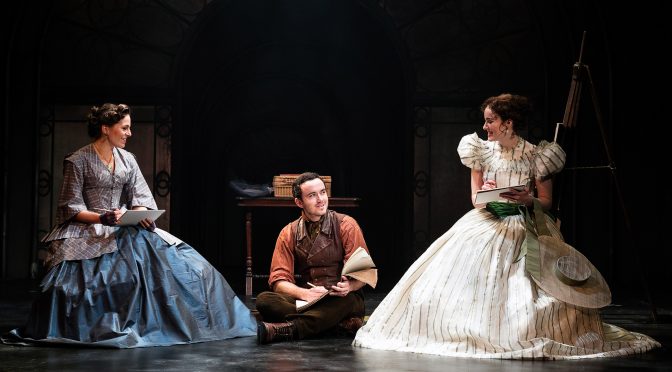After The Phantom of the Opera last weekend, Andrew Lloyd Webber’s next fund-raising offering was the hit show’s sequel. Ten years after the Opera Populaire burned down, The Phantom has escaped to Coney Island, become a successful producer, and is ready to try and steal his love and muse, Christine Daaé, from her husband Raoul. Excitingly, this is the 2011 production from Melbourne’s Regent Theatre. Regarded as the best version, director Simon Phillips’ bold work makes the most of a piece that, while far from a flop, failed to escape from the shadow of its progenitor.
Phillips plays to the musical’s strengths and adds an aesthetic (with designer Gabriela Tylesova) that, by loosening the historical setting a little, adds genuine spookiness with a touch of Tim Burton. His cast is strong and embraces the better written characters. The play’s meaty plot, which appropriately has a long credit line – Webber, Glenn Slater, Ben Elton and Frederick Forsyth – is delivered with verve throughout. There are still problems: correcting (perceived) shortcomings in its famous original are all very well, but they make for a show that’s crowded and self-conscious, while Slater’s lyrics end up laboured and uninspired. Yet the show is entertaining and interesting.
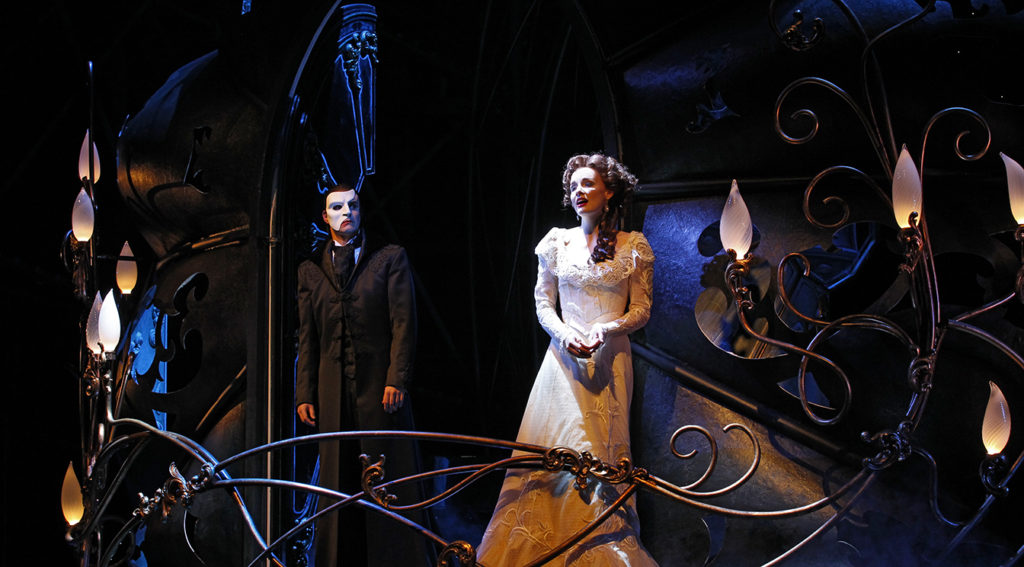
You might notice some of the characters’ recollections of the past events seem distorted! Each sleight of hand heightens drama and romance, likewise Lloyd Webber’s lush score. Filling out previous events also aids characterisation – both male leads are more complex characters. Ben Lewis’s Phantom is more human and Simon Gleeson’s Raoul more than just a Prince Charming (in fact, he’s a nasty snob and drunk). Both performers’ rich voices make them perfectly cast, and they excel in their scenes of confrontation. It’s a shame the final lead, sung beautifully by Anna O’Byrne, isn’t afforded the same treatment. Christine almost disappears between the men – very naughty. No matter how many times her name is sung (too many), she lacks agency.
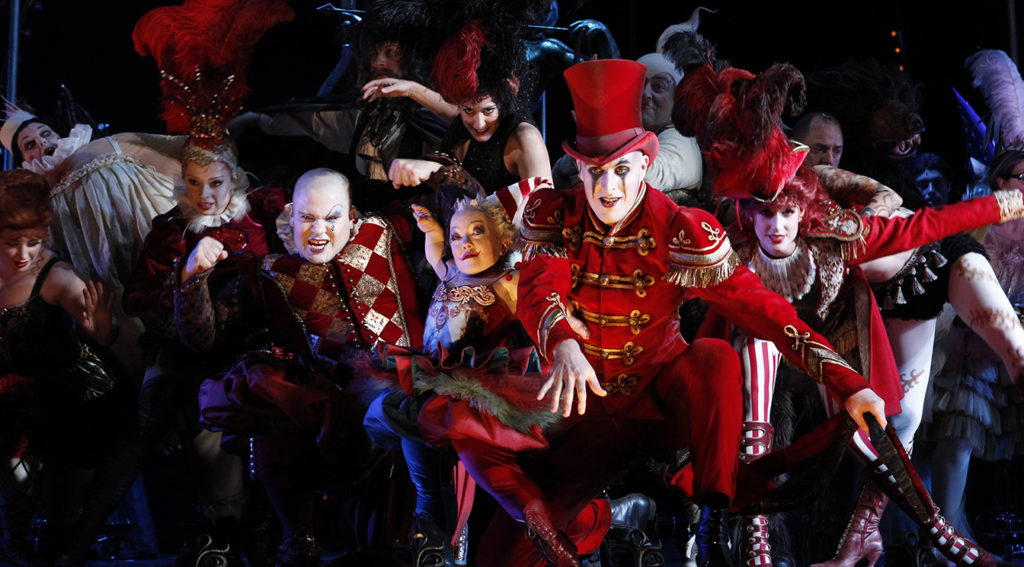
Improvements predominate, though, with beefed up roles for Phantom acolytes. Madame Giry is more interesting, allowing Maria Mercedes a chance to shine, and her daughter Meg (did I miss that relationship before?) becomes a major role, delivered superbly by Sharon Millerchip. Their colleagues in Coney Island, a creepy collection with a strong presence, are well delivered by Paul Tabone, Dean Vince and Emma J Hawkins. Best of all is the role of Gustav, Christine’s son, performed here by Jack Lyall – one of the finest younger performers I’ve seen. OK, so you can guess the plot twist. But having a youngster included opens out the story marvellously. It gives Webber’s score a chance to fly, with new musical possibilities, that he grasps to explore his motif of the “pure and unearthly” with considerable sophistication.
Available on The Show Must Go On! youtube channel until 26 April 2020
Photos by Jeff Busby

